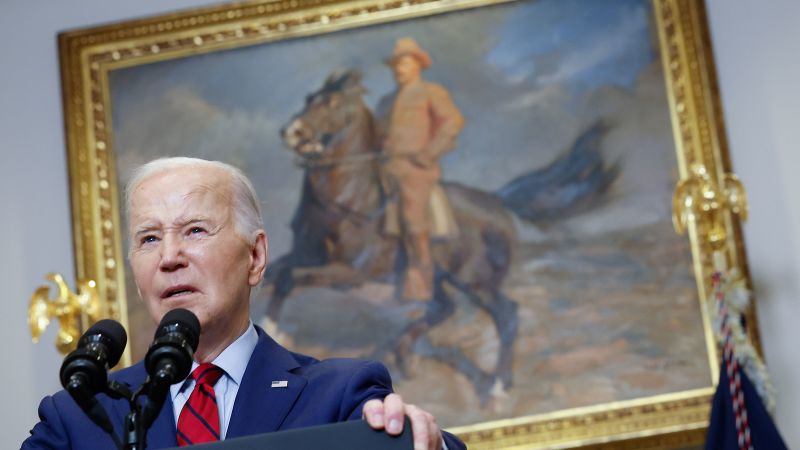President Joe Biden is facing a challenging summer as protests erupt on college campuses over the civilian carnage in Israel’s war in Gaza, threatening to spill over into the Democratic National Convention in August. After days of demonstrations, Biden finally addressed the situation, emphasizing the importance of upholding core principles like the right to free expression and the rule of law. While the protests may subside after finals, Biden must walk a fine line to avoid alienating young progressive voters while also appealing to moderate voters who may see him as weak.
Biden’s lack of engagement in past activist movements, such as the Vietnam War protests, presents an optics problem as he tries to navigate the current social unrest. He has always been more aligned with establishment politics and legislating than with protesting. In his recent remarks, he spoke to a silent majority of Americans who value stability and may not be represented in the more extremist elements of campus protests. However, his approach may harken back to a quieter, more conventional age that no longer exists in today’s polarized political landscape.
The Gaza protests have highlighted a deep vulnerability in Biden’s reelection campaign, as the war has shifted American politics and highlighted a generational divide over Israel. While Biden remains steadfast in his support for Israel, many younger voters sympathize with Palestinians, creating a challenge for the president. Sen. Bernie Sanders warned that Biden could be on track to repeat the fate of President Lyndon Johnson, who faced opposition over the Vietnam War and ultimately chose not to seek reelection. Biden’s handling of the Israel-Hamas conflict is facing criticism from Democratic base voters, particularly the younger demographic.
While Biden’s situation is not exactly like Johnson’s during Vietnam, the challenges he faces in addressing the Israel-Hamas conflict resonate with a significant portion of Democratic voters. Sanders expressed concerns that Biden’s views on Israel could alienate key segments of his support base, particularly young voters who disapprove of his handling of the situation. However, the lack of American troops on the ground in Gaza and the absence of mass casualty events involving Americans may limit the societal impact of the conflict, despite strong sentiments among some segments of the population.
Biden is striving to navigate a delicate balance between addressing the unrest on college campuses and not appearing weak in the face of escalating protests. As he attempts to appeal to a broad spectrum of voters, including progressives and moderates, his reelection hopes may hinge on how effectively he can manage the current political climate. By emphasizing the importance of respecting free expression and dissent, Biden aims to position himself as a leader who upholds American values while facing challenges both at home and abroad. Ultimately, his ability to connect with voters across the political spectrum will determine his success in the upcoming election.













